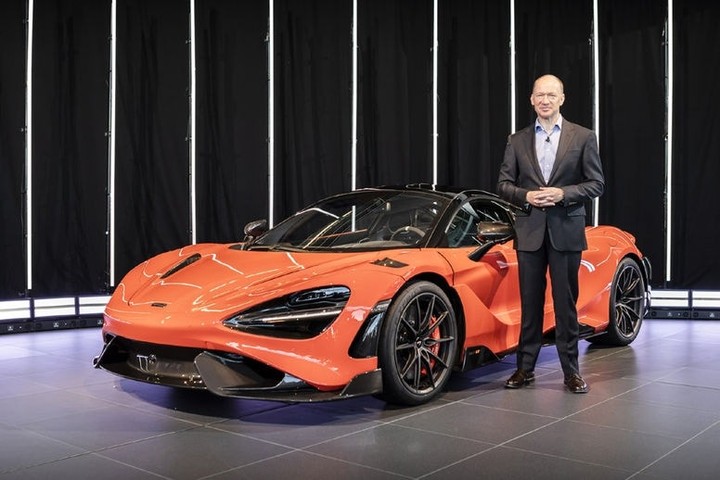Can Porsche’s New CEO Turn a $1.1 Billion Loss Into a Comeback Story?
As of Q3 2025, Porsche has reported a €966 million ($1.1 billion) operating loss, sending shockwaves through the luxury car market. Yet shares rose 4% as investors bet on new CEO Michael Leiters’ turnaround plan focused on hybrid innovation, restructuring, and restoring profitability by 2026. Analysts say the iconic automaker’s financial recovery could redefine the future of high-end electric mobility.
Porsche’s $1.1 Billion Setback: Can a New CEO Reverse the Slide?
It’s not often that a company loses over a billion dollars and still sees its shares jump 4%, but that’s exactly what happened to Porsche AG this week. The legendary automaker, synonymous with luxury and engineering excellence, reported a €966 million ($1.1 billion) quarterly loss—its worst performance since going public in 2022.
The figure, though grim, hasn’t rattled investors as much as expected. Confidence is quietly building around Michael Leiters, the incoming CEO set to take the wheel in January 2026. A veteran of Ferrari and McLaren, Leiters has been hailed as the “engineer with a CFO’s brain,” bringing both performance precision and financial rigor to a brand in transition.
The Market’s Surprising Response
While a billion-dollar loss typically triggers panic selling, Porsche’s shares instead rose 4%, a move analysts say reflects “faith over fear.” Investors are betting that Leiters’ upcoming strategy, balancing hybrid luxury and EV innovation—could stabilize margins and reignite growth.
“Porsche is not broken—it’s realigning,” said Daniel Roeska, an automotive analyst at Bernstein Research. “The company is restructuring after a costly electric pivot. Investors are now looking beyond the short-term pain to the longer-term strategy.”
According to analysis reviewed by CEO Today, this rebound optimism stems from Porsche’s ability to hold premium pricing, preserve brand cachet, and manage its transition toward sustainability while still appealing to traditional sports car enthusiasts.
Financial Crossroads: What Went Wrong
Porsche’s Q3 loss comes down to three major factors, EV production costs, global tariffs, and falling Chinese demand.
-
Tariff Trouble: New trade tariffs between the U.S. and Europe could cost the automaker an estimated €700 million by year’s end.
-
EV Overinvestment: The aggressive expansion into full-electric production has led to ballooning R&D costs, adding roughly €500 million annually.
-
Demand Shift: Deliveries fell 6% year-to-date, with Asia-Pacific sales taking the hardest hit.
Operating margins, once near 18%, are now expected to dip below 3%, eroding Porsche’s reputation as one of the most profitable carmakers in the world.

Michael Leiters
Leadership Change: Michael Leiters’ High-Stakes Mission
Incoming CEO Michael Leiters inherits a brand at an inflection point. Known for his sharp focus on profitability at Ferrari and technical leadership at McLaren, Leiters’ appointment signals a pivot from creative luxury to financial discipline.
His agenda reportedly includes:
-
Rebalancing EV and hybrid production to match consumer appetite.
-
Revising supplier contracts to mitigate material cost inflation.
-
Expanding into profitable “heritage design” editions, leveraging brand nostalgia.
“Michael Leiters has the dual mindset needed now—engineer and economist,” noted Professor Ferdinand Dudenhöffer, head of Germany’s Center for Automotive Research. “He understands that Porsche must rebuild not only cars, but confidence.”
Legal and Policy Pressures
The company’s financial challenges are compounded by growing legal and regulatory headwinds. Porsche is under scrutiny in Europe over labor restructuring and the potential environmental impact of its battery supply chain.
Meanwhile, U.S. trade tensions continue to complicate import costs and corporate forecasts. Should trade relations deteriorate further, analysts warn Porsche could face new compliance costs running into hundreds of millions of euros.
Porsche’s Path Forward: Strategy Meets Survival
Despite short-term volatility, Porsche’s leadership has reiterated its long-term vision: to become the most profitable luxury automaker in the world, not merely the most innovative. The strategy now centers on:
-
Hybrid-first innovation instead of all-electric dominance.
-
Profitability over volume, with more bespoke, limited-run vehicles.
-
Sustainability leadership, with greater investment in low-impact manufacturing.
Investors appear cautiously optimistic that the new approach—anchored by Leiters’ leadership—could restore Porsche’s balance sheet by late 2026.
Investor Confidence Returns—Cautiously
For many, the company’s future rests on a single question: Can Porsche stay true to its heritage while embracing the future?
The market’s early reaction suggests the answer may be yes. Porsche’s resilience, bolstered by strong branding and an unmatched loyal customer base, gives it an edge that most rivals lack.
Still, the next year will test whether Michael Leiters can deliver not just a comeback—but a case study in modern automotive reinvention.
Your Top Questions About Porsche’s Financial Shake-Up
1. Why did Porsche lose $1.1 billion in Q3 2025?
Porsche’s losses stemmed from high EV production costs, global tariffs, and declining sales in China.
2. Who is Michael Leiters, Porsche’s new CEO?
Michael Leiters, former Ferrari and McLaren executive, will officially take over as Porsche CEO in January 2026.
3. Is Porsche still investing in electric vehicles?
Yes, but the company is now rebalancing toward hybrid performance models to protect profitability and meet market demand.














